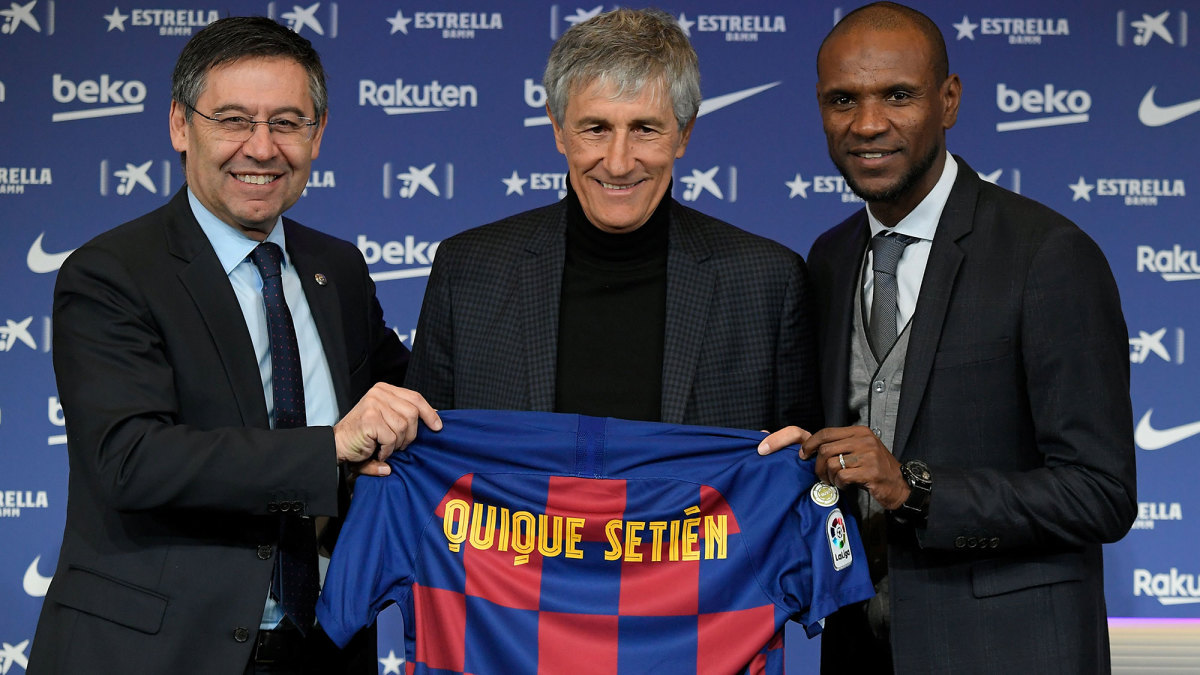Chaos at Camp Nou: Inside Barcelona's Bubbling Crisis
No club is enjoying a good spell during the coronavirus crisis, but then again, no club is having quite such a bad one as Barcelona. As the financial downturn begins to bite, the ongoing mismanagement of the club is being exposed, and there aren’t even in any matches in which Lionel Messi can do something brilliant to deflect attention from the chaos in the boardroom.
The presidency of Josep Maria Bartomeu had been under attack for several months before the crisis. Messi is not an obviously political animal, so the fact that he had taken to offering public criticism of the board on a regular basis is significant. But the events of last Thursday evening, when six directors resigned, have taken the crisis to a new level. Even worse for Bartomeu, one of those who resigned was Emili Rousaud, whom he had elevated to vice president only a month ago, effectively nominating him as the continuity candidate and his ideal successor, to stand in next year’s presidential elections.
Having resigned, Rousaud then suggested somebody at the club “had their hand in the till,” an explosive allegation of corruption. Barcelona responded with a vague threat of legal action, although it’s hard to believe it would want the scrutiny of a court case that would put the I3 Ventures scandal into a detailed, public spotlight. Simply put, payments of €900,000 were made to I3 Ventures, a company that the club says was contracted to monitor social media activity. Radio station Cadena Ser, though, reported allegations that I3 Ventures was running a coordinated attack campaign on social media against those opposed to the club and the president. At one point, it’s said, that included some of Barcelona’s own players–even Messi.
Bartomeu has dismissed the allegations as “completely false,” but Jaume Masferrer, his closest adviser, was suspended pending investigation. But there is something else odd about the I3 Ventures deal. Why was the fee so high? Some have suggested the work officially done was probably worth about a sixth of what was paid. And why were the payments made in a series of tranches, each of just under the €200,000 threshold that would have triggered an immediate internal audit?
Even without the I3 Ventures affair, this has been an extraordinarily turbulent few months for Barcelona. The chaos is so all-encompassing it’s hard to know where to begin, although the loss of Neymar to Paris Saint-Germain three years ago and the subsequent panic signings of Ousmane Dembele and Philippe Coutinho for inflated fees is probably a decent place to start.
PSG, it’s been suggested, deliberately shattered the world-record fee in order to inflate the market, knowing it had resources unmatched by the vast majority of clubs; whether that was a deliberate ploy or not, it has shattered Barcelona, not least because the signings, as well as wasting the $220 million windfall, also broke any semblance of a wage structure.

The underlying turmoil broke to the surface in January with the dismissal of Ernesto Valverde, despite the fact that Barcelona stood top of the table. Xavi, Ronald Koeman and Mauricio Pochettino turned the job down, leaving Barcelona, almost sheepishly, to appoint Quique Setien. Sporting director Eric Abidal blamed the players for Valverde’s removal, after which Messi’s patience snapped and he offered his first denunciation of the board. In January, Barcelona failed to sign the striker it needed but did offload two, meaning that when Dembele and Luis Suarez were both injured, it had to apply for an emergency transfer. It picked up Martin Braithwaite from Leganes for far more than he would have cost during the window.
The crisis has hit Barcelona’s finances particularly hard, in part because its wages are so high, and in part because it derives so much of its income beyond TV rights from matchday revenue and tourism. Legislation exists in Spain that allows employers to reduce wages by up to 70% if it is impossible for employees to do their jobs. As other clubs began negotiating with players, Barcelona moved unilaterally to impose a cut. Players were furious, pointing out that they had no wish to see their wages go toward a putative transfer kitty and seeking assurances of how the money saved would be used. In the end they agreed not only to a 70% cut, but also an additional 2% to fund the salaries of all non-playing staff who may otherwise have been laid off. Again, the club lost the PR war, looking petty, venal and disorganized.
As discontent with Bartomeu continued to mount, the president moved to quell dissent. Last Tuesday he invited four board members to resign. Roussaud was among them. He refused, but on Thursday did quit, with the other three and, crucially, two more. What was intended as a show of strength by the president was rapidly transformed into an expression of dissatisfaction in him. Less than half the board he appointed in 2015 now remains, while he has gone through seven vice presidents.
The crisis has brought underlying tensions to the surface. Bartomeu may limp on to next year’s elections, but the mess is undeniable. Change is coming.
